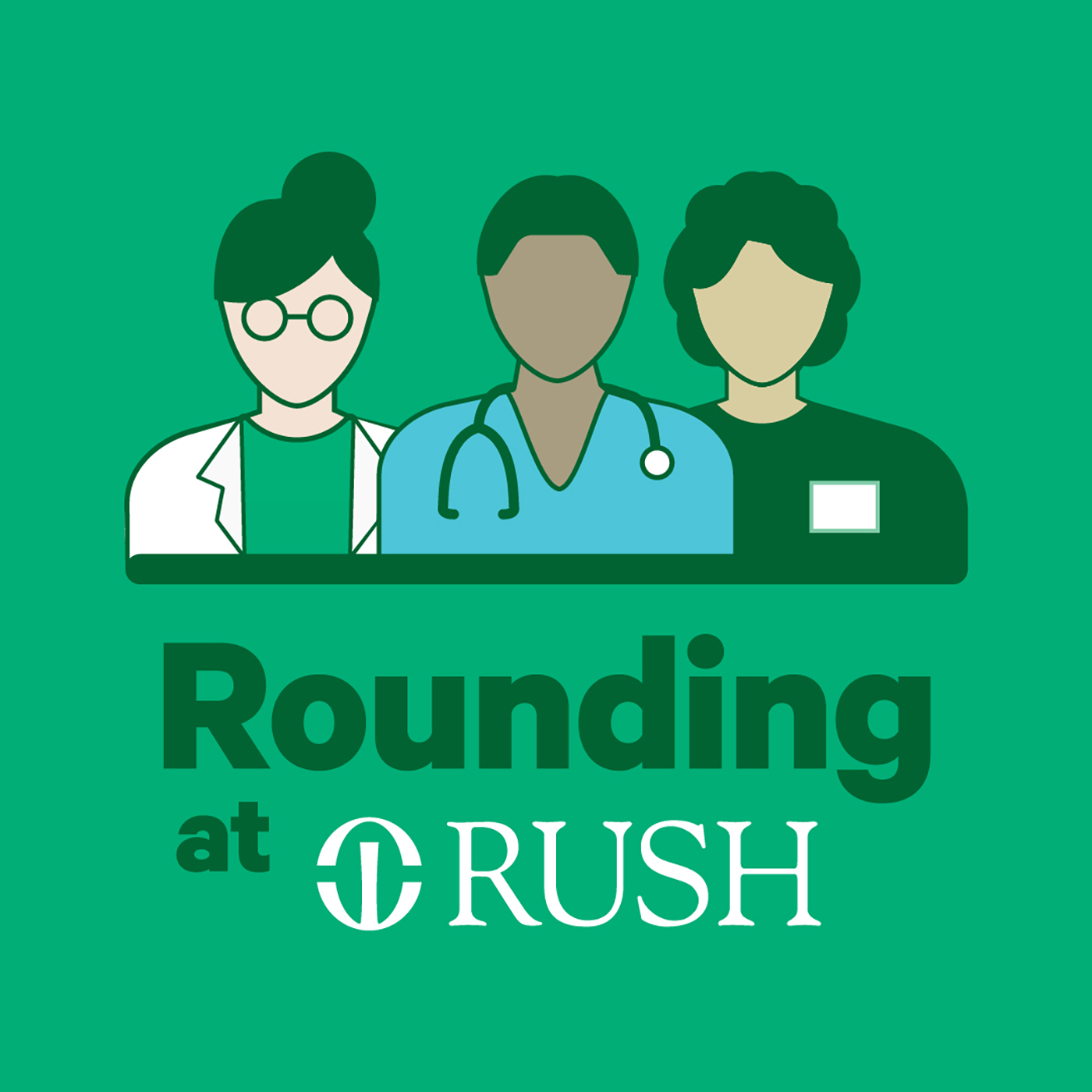
Rounding at Rush spotlights the work of physicians across the Rush University System for Health, comprised of two community hospitals and Rush University Medical Center, which is ranked by U.S. News & World Report as one of the nation’s best hospitals. As a leading health system, Rush delivers outstanding patient care, offers the latest treatments, educates the next generation of health care providers, and pursues groundbreaking research. Accreditation Statement In support of improving patient care, Rush University Medical Center is jointly accredited by the Accreditation Council for Continuing Medical Education (ACCME), the Accreditation Council for Pharmacy Education (ACPE), and the American Nurses Credentialing Center (ANCC), to provide continuing education for the health care team. This activity is being presented without bias and with/without commercial support. Designation Statement Rush University Medical Center designates this internet enduring material activity for a maximum of One (1) AMA PRA Category 1 Credit(s)™. Physicians should claim only credit commensurate with the extent of their participation in the activity. Disclosures The course director(s), planner(s), faculty and reviewer(s) of this activity have no relevant financial relationships to disclose.
Episodes
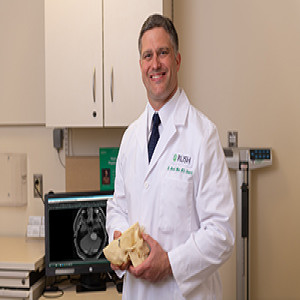
Thursday Jun 23, 2022
The RUSH Acoustic Neuroma Program with Mark Wiet, MD
Thursday Jun 23, 2022
Thursday Jun 23, 2022
Led by Mark Wiet, MD, the RUSH Acoustic Neuroma Program offers personalized specialty care for patients with acoustic neuroma, a benign and often slow-growing tumor of the nerve that connects the ear and the brain. The program brings together specialists in neurotology, neurosurgery, radiation oncology, neuro-oncology, neuroradiology, audiology and physical therapy, who have extensive expertise in the diagnosis and treatment of this rare condition.
Dr. Wiet is the head of the section of otology, neurotology and lateral skull base surgery at RUSH University Medical Center. Board certified in otolaryngology and neurotology, he specializes in the comprehensive management of acoustic neuroma and lateral skull base tumors, pediatric and adult implantable hearing devices, including cochlear implants and bone anchor hearing aids and pediatric and adult general otology.
“We offer all of the broad treatment options for acoustic neuroma--observation, radiation and surgery--and because of that, we offer an unbiased opinion of care. We have a full complement of providers all working together to help patients achieve their best possible outcome.”
CME link: https://cmetracker.net/RUSH/Publisher?page=pubOpenSub#/event/486241/
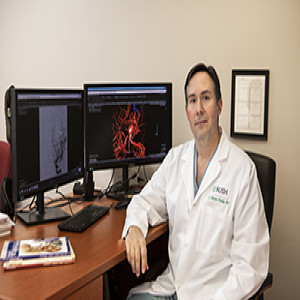
Tuesday May 24, 2022
Minimally Invasive Neurosurgical Treatments at RUSH with R. Webster Crowley, MD
Tuesday May 24, 2022
Tuesday May 24, 2022
As the no. 3 ranked neurology and neurosurgery program in the country, RUSH University Medical Center is at the forefront of providing leading edge care and participating in pathfinding neuro-interventional research. At the center of this work is R. Webster Crowley, MD, who discusses Rush’s use of the CorPath robotic system, Woven EndoBridge Embolization System and the RIST catheter.
He is the chief of the Section of Cerebrovascular and Endovascular Neurosurgery, as well as the surgical director of the Comprehensive Stroke Center. He is also the director of the Endovascular Neurosurgery Fellowship and his research interests include stroke, aneurysm treatment, pseudotumor cerebri and subarachnoid hemorrhage.
“We were one of the first programs to use the CorPath endovascular robot, which is used to diagnose cerebral angiograms, but has the potential for broader interventional uses with aneurysm and stroke treatment in the future. Rush also performed the first surgery in the world using the RIST catheter, which helps neurosurgeons access cerebral aneurysms with a better safety profile. Our neuro interventional program allows us to expand the ways that patients have access to the latest minimally invasive care.”
CME Credit link: https://cmetracker.net/RUSH/Publisher?page=pubOpenSub#/event/485661
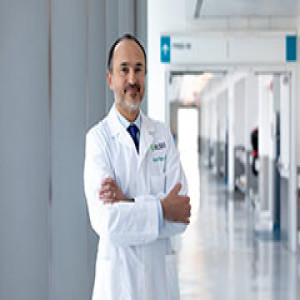
Tuesday Apr 12, 2022
Tuesday Apr 12, 2022
Polyvascular disease is the presence of atherosclerosis in more than one arterial bed. While it is not a new phenomenon, polyvascular disease has been brought to the forefront in recent years through the expansion of clinical and research endeavors that include non coronary atherosclerosis, specifically lower extremity peripheral artery disease and cerebrovascular disease. The relevance of polyvascular disease is centered on its associated heightened risk for cardiovascular death, myocardial infarction and ischemic stroke.
Faisal Hasan, MD, FACC, FSCAI, is the Clinical Division Chief of Cardiology at RUSH University Medical Center and the Co-Director of the Cardiovascular Service Line at RUSH. Dr. Hasan is also an associate Professor in the Department of Internal Medicine, Division of Cardiology, at Rush Medical College whose recent work has focused on investigating outcomes in patients who present with myocardial infarction and have coexisting polyvascular disease.
“[In treating polyvascular disease], the patient is at the center of the care management team and all care providers, regardless of their subspecialty, come together and unify to treat these complex patients. We have noticed that this kind of collaborative approach leads to improved coordination of care leading to better patient outcomes.”
CME credit link: https://cmetracker.net/RUSH/Publisher?page=pubOpenSub#/event/485203
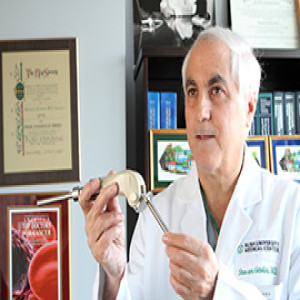
Thursday Mar 10, 2022
Thursday Mar 10, 2022
The RUSH Cancer Center has a deep commitment to accelerating innovations that bring cutting edge research to the bedside. Two examples of those innovations that Steven Gitelis, MD, and RUSH have an active role in developing are 3-D printed models, which can help to preserve healthy tissue when treating benign and malignant bone and soft tissue tumors, and hybrid cold plasma, which can help stop the recurrence of cancer after surgery.
Steven Gitelis, MD, is a highly regarded expert in the area of orthopedic oncology and limb reconstruction and currently serves as the Director of Musculoskeletal Oncology at the RUSH Cancer Center and the Director of the RUSH Center for Limb Preservation. He has been repeatedly voted as one of Chicago’s best doctors by Chicago Magazine and one of America’s top doctors by Castle Connolly.
“Any patient who has bone cancer where you’re trying to do limb salvage and preserve as much healthy tissue as possible, they are all good candidates for 3-D printed technology. The laboratory efficacy is well established in modeling, but we’re all anxious to see the clinical outcomes and prove that these patients have better function, which is my hope and expectation.”
CME credit link:
https://cmetracker.net/RUSH/Publisher?page=pubOpenSub#/event/485026
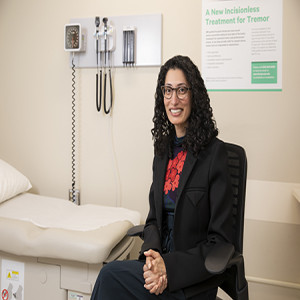
Wednesday Feb 02, 2022
Deep Brain Stimulation Care at RUSH with Neepa Patel, MD
Wednesday Feb 02, 2022
Wednesday Feb 02, 2022
The movement disorders neurology group at RUSH University Medical Center is one of the largest and most experienced groups in the world, with clinicians who specialize in managing the symptoms of Parkinson’s disease and other movement disorders. One of the treatment modalities they use to treat these patients is deep brain stimulation (DBS). DBS helps patients with movement disorders control their symptoms of tremor, rigidity, stiffness, slowed or abnormal movements and walking problems. RUSH treats the largest number of DBS patients in the Midwest.
Dr. Neepa Patel is a neurologist in the RUSH University System for Health and the director for the Movement Disorder Interventional Program in the Department of Neurological Sciences. Her interests include improving the quality and delivery of care for patients receiving deep brain stimulation (DBS) and education to improve the utilization of new therapies in movement disorders. She is also part of the RUSH team caring for essential and Parkinsonian tremor patients with MR-guided focused ultrasound, an incisionless treatment designed to reduce hand tremor.
“We work in a very comprehensive, multidisciplinary, team-based approach at RUSH to treat patients with movement disorders using DBS. We share our ideas and experiences because everyone comes from different training backgrounds, different expertise and years of experience in managing patients. This helps us take care of patients who are nontraditional, but who still could benefit from this therapy.”
CME credit link: https://cmetracker.net/RUSH/Publisher?page=pubOpenSub#/event/484707/

Thursday Jan 06, 2022
Vascular and Interventional Radiology Cancer Care at RUSH with Jordan Tasse, MD
Thursday Jan 06, 2022
Thursday Jan 06, 2022
The vascular and interventional radiology department at RUSH University Medical Center provides the most current and clinically comprehensive care to patients. Several of Rush’s internationally renowned interventional radiologists have helped to pioneer and advance many interventional techniques used today. By performing the latest procedures and engaging in advanced research, our providers are working to uncover new uses for interventional radiology approaches as well as refine current techniques, in specialties such as oncology, peripheral arterial disease and women’s health.
Jordan Tasse, MD, an interventional radiologist at RUSH University Medical Center, profiles the cutting edge procedures performed through interventional radiology care at RUSH. As one of the few places nationwide to provide the full spectrum of vascular and interventional procedures, interventional radiology care at RUSH has transformed the lives of many of its patients, particularly those affected by cancer. Dr. Tasse is also the Director of Interventional Oncology at RUSH and is an Associate Professor of Radiology and Vascular and Interventional Radiology at RUSH Medical College.
“We have a really great atmosphere of collaboration between different specialties. Our approach is grounded in a multidisciplinary fashion where we have medical oncologists, hepatologists, liver surgeons, colorectal surgeons, radiation oncologists, and interventional oncologists all talking at multidisciplinary tumor boards and developing the best approach to each patient’s cancer care.”
CME credit link: https://cmetracker.net/RUSH/Publisher?page=pubOpenSub#/event/484420
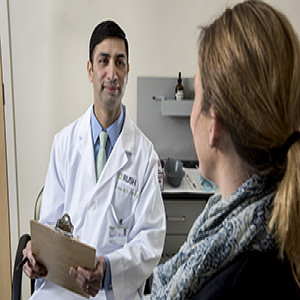
Thursday Dec 02, 2021
The RUSH Center for Skull Base and Pituitary Surgery with Pete Batra, MD
Thursday Dec 02, 2021
Thursday Dec 02, 2021
The RUSH Center for Skull Base and Pituitary Surgery, a leading program in the treatment of skull base disorders, brings together experts from more than 10 specialties to provide personalized, comprehensive care for patients with complicated skull base pathology such as pituitary adenoma, acoustic neuroma, meningioma and cerebrospinal fluid leak/encephalocele.
Pete Batra, MD, the Chair of the Department of Otorhinolaryngology – Head and Neck Surgery at RUSH University Medical Center, highlights Rush’s unparalleled expertise, its use of leading-edge treatments and how it’s developing novel therapies for rare types of cancers. Batra, an internationally recognized rhinologist and anterior skull base surgeon, serves as the co-director of the RUSH Center for Skull Base and Pituitary Surgery and medical director of the RUSH Sinus, Allergy and Asthma Center.
“We can provide patients with the highest quality outcomes in the nation through our investment in the next generation of surgical navigation platforms. Having the latest and greatest tools, devices and instrumentation is important, but the most critical aspect is expertise, which I really think is the key ingredient to [our] success.”
CME credit link: https://cmetracker.net/RUSH/Publisher?page=pubOpenSub#/event/484209/
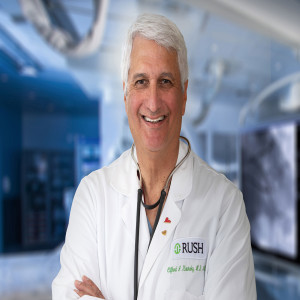
Thursday Oct 28, 2021
Thursday Oct 28, 2021
RUSH University Medical Center and the RUSH Center for Congenital Structural Heart Disease have been at the forefront in developing state-of-the-art therapies for congenital and acquired structural disorders. Minimally invasive innovations, such as transaortic valve replacement (TAVR), MitraClip and the CoreValve, have helped patients enjoy faster recovery times, less pain and, typically, less cardiac rehabilitation.
Clifford Kavinsky, MD, PhD, joins the podcast to profile the next generation of minimally invasive cardiac care, including several clinical trials that RUSH is participating in. Dr. Kavinsky is the Director of the RUSH Center for Adult Structural Heart Disease, the Chief of the Section of Structural and Interventional Cardiology and the Associate Director for the Cardiovascular Disease Fellowship Program. He is an expert on catheter-based therapies for heart and vascular disease and is an internationally recognized leader in the use of novel treatments for adults with congenital and structural heart disease.
“It’s a really exciting time to practice cardiovascular medicine when there’s such an explosion of technology and thrust towards less invasive techniques that historically we’ve always done with large surgical procedures. It’s particularly satisfying to be able to put a new valve in a patient and send them home the next day. When you think about surgery and how they used to be in the hospital for a week and recover for six to 12 weeks, it’s quite remarkable.”
CME link: https://cmetracker.net/RUSH/Publisher?page=pubOpen#/EventID/483920/
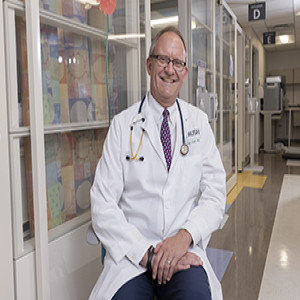
Monday Oct 04, 2021
Monday Oct 04, 2021
Five years ago, RUSH University Medical Center was treating very few patients with fibrolamellar carcinoma. Today, RUSH treats the largest number of patients in the country with this rare type of liver cancer, which typically affects adolescents and young adults. During that span, RUSH has developed innovative, cutting edge treatments and is considered a national leader in the treatment of this disease.
Paul Kent, MD, a pediatric hematologist-oncologist and the medical director of the fibrolamellar carcinoma program at RUSH, profiles the forward thinking treatments RUSH developed. Patients who were previously unable to have their liver tumors surgically removed became surgical candidates at RUSH. And some patients who were once on hospice care were given second chances through the groundbreaking work of Dr. Kent and his colleagues.
“When you have a very rare, terrible disease that we know most people can’t survive without some dramatic [intervention], then that’s your opportunity to try something new. As long as what you’re trying has scientific rationale, is logical and, equally important, that you follow very closely for any side effects, then you publish those results, good or bad, so the world can learn from it.”
CME credit link: https://cmetracker.net/RUSH/Publisher?page=pubOpen#/EventID/483689

Monday Aug 30, 2021
Cardiac PET Perfusion at RUSH with Rupa Sanghani, MD
Monday Aug 30, 2021
Monday Aug 30, 2021
Cardiac positron emission tomography (PET) perfusion with flow quantification is the latest advancement in nuclear stress testing and is used to examine how well blood flows to the heart muscle. RUSH is the first and only hospital in Illinois to offer this technology.
Dr. Rupa Sanghani, a cardiologist in the RUSH University System for Health, discusses the ways RUSH incorporates cardiac PET perfusion in its complement of cardiac diagnostics and care, the benefits of using it and when cardiac PET should be implemented. Dr. Sanghani is the director of RUSH University Medical Center’s nuclear cardiology and stress laboratory and the associate director for the RUSH Heart Center for Women. Her clinical expertise is in cardiac imaging, cardiovascular risk assessment and counseling, coronary artery disease and with women who either have heart disease or are at risk for it.
“It's a huge boon to offer our patients and referring physicians cardiac PET perfusion. We can use information from it to provide patients with a comprehensive risk assessment for their cardiac health. Flow and flow reserve is what people are most excited about with PET. The advantage to cardiac PET is that we’re not just looking at relative perfusion, but we can actually quantitate the myocardial blood flow.”
CME credit link: https://cmetracker.net/RUSH/Publisher?page=pubOpen#/EventID/483393
